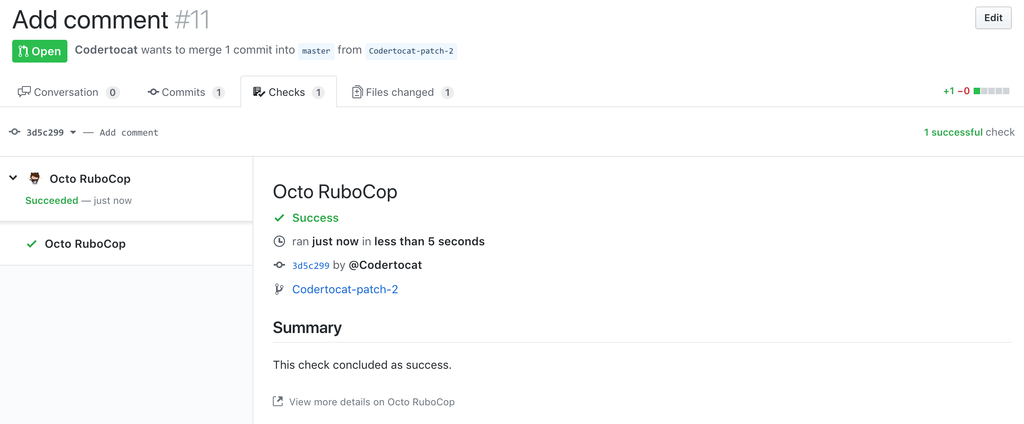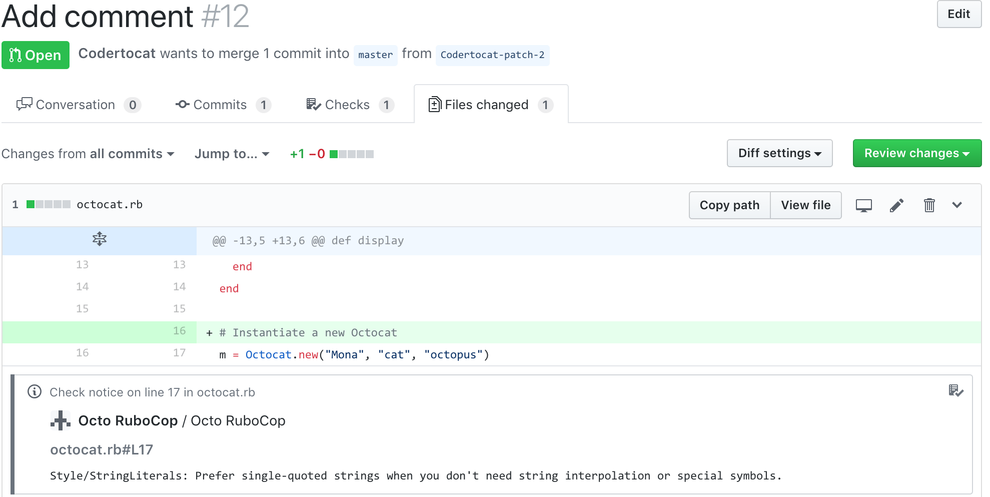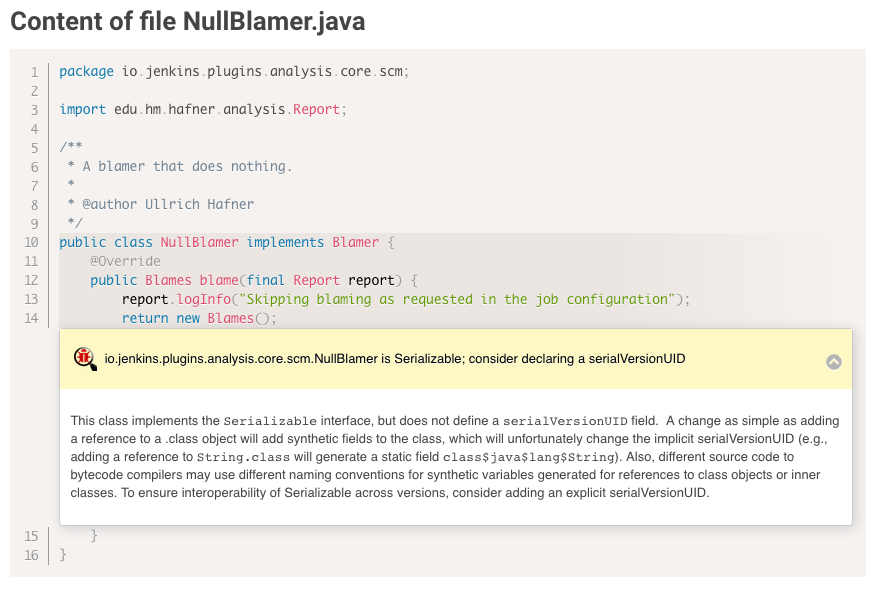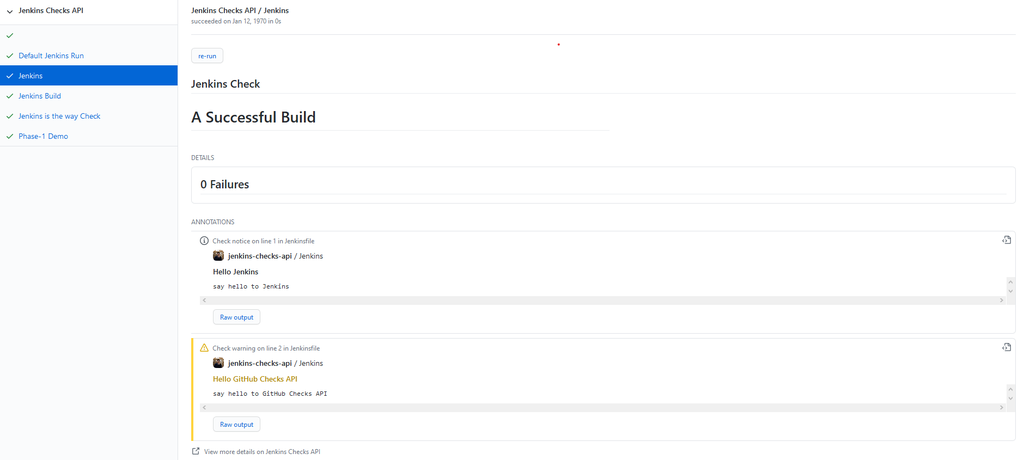GitHub Checks API Plugin Project - Coding Phase 1
This blog post is about our coding phase 1 progress on GSoC project: GitHub Checks API Plugin.
The GitHub Checks API is a highly customized way to integrate CI tools to make reports for pull-requests (PRs). It allows users to see CI reports on GitHub pages directly.

What’s more exciting is that it can leave annotations on specific lines of code, just as the comments people left while reviewing.

While on Jenkins' side, the source code view provided by Warnings Next Generation Plugin does pretty much the same thing.

Utilizing such features through GitHub Checks API, it would make Jenkins more convenient to GitHub users.
Features from Coding Phase 1
In the past month, our team was mostly working on the general checks API and an implementation for GitHub checks API.
General Checks API
Although the general checks API is developed based on the semantic meaning of GitHub Checks API, we still want to prepare it for similar concepts on other platforms like Commit Status API from GitLab. Contributions for implementations on these platforms will be welcomed in the future.
GitHub Checks API Implementation
Our work on supporting GitHub Checks API is mostly done by now. Besides, we implemented a consumer to automatically create a check run that simply indicates the current stage of a Jenkins build. After the release, Jenkins developers (especially publisher plugin ones) can create their own GitHub checks for a GitHub branch source project by consuming our API.
Example: To create a check run like:

Consumers need to use our API in this way:
ChecksDetails details = new ChecksDetailsBuilder()
.withName("Jenkins")
.withStatus(ChecksStatus.COMPLETED)
.withDetailsURL("https://ci.jenkins.io")
.withStartedAt(LocalDateTime.now(ZoneOffset.UTC))
.withCompletedAt(LocalDateTime.now(ZoneOffset.UTC))
.withConclusion(ChecksConclusion.SUCCESS)
.withOutput(new ChecksOutputBuilder()
.withTitle("Jenkins Check")
.withSummary("# A Successful Build")
.withText("## 0 Failures")
.withAnnotations(Arrays.asList(
new ChecksAnnotationBuilder()
.withPath("Jenkinsfile")
.withLine(1)
.withAnnotationLevel(ChecksAnnotationLevel.NOTICE)
.withMessage("say hello to Jenkins")
.withStartColumn(0)
.withEndColumn(20)
.withTitle("Hello Jenkins")
.withRawDetails("a simple echo command")
.build(),
new ChecksAnnotationBuilder()
.withPath("Jenkinsfile")
.withLine(2)
.withAnnotationLevel(ChecksAnnotationLevel.WARNING)
.withMessage("say hello to GitHub Checks API")
.withStartColumn(0)
.withEndColumn(30)
.withTitle("Hello GitHub Checks API")
.withRawDetails("a simple echo command")
.build()))
.build())
.withActions(Collections.singletonList(
new ChecksAction("formatting", "format code", "#0")))
.build();
ChecksPublisher publisher = ChecksPublisherFactory.fromRun(run);
publisher.publish(details);Future Works
The next step is integrating our API into Warnings Next Generation Plugin and Code Coverage API Plugin consume our API. After that, pipeline support will be added: users can publish checks directly in a pipeline script without requiring a consumer plugin that support the checks.